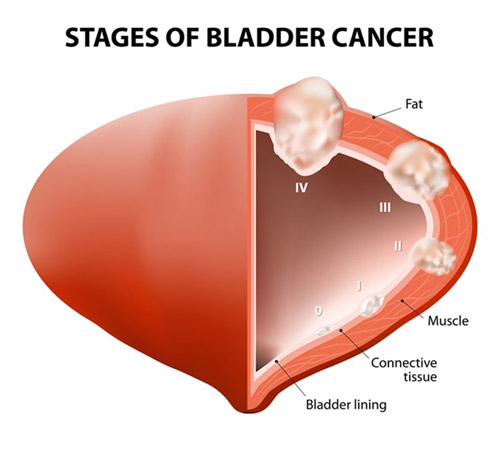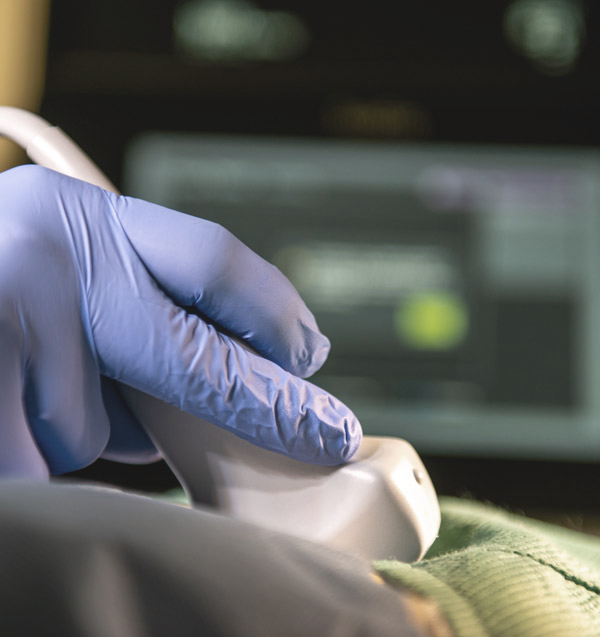Bladder Cancer
Bladder cancer is the growth of abnormal tissue (tumour) in the bladder. There are several stages of bladder cancer.

Bladder cancer is an abnormal growth of the cells lining the bladder wall, smoking is the most common risk factor.
Exposure to certain chemicals or fumes at work, recurrent infections or radiotherapy in the region can also predispose to bladder cancer.
Symptoms of bladder cancer can include blood in the urine either visible or microscopic (on testing), recurrent infections or irritative voiding i.e. frequency and urgency.
Most bladder cancers (~80%) are detected at an early stage.
Screening for
Bladder Cancer
Scans are performed either ultrasound or CT scan when blood is detected in the urine.
As many bladder cancers are small and not always evident on the scans, a telescope inspection (cystoscopy) of the bladder is usually performed.
A cystoscopy is a short procedure which is performed under a local or light anaesthetic.

Treatment
Surgical resection of the tumour is performed under an anaesthetic which involves carving the tumour from the bladder with a telescope.
Most bladder tumours can be cured with this approach if found early. Due to the common rate of recurrence, follow up cystoscopy is usually performed.
Often chemotherapy or immunotherapy agents are used in conjunction initially or as an outpatient to either reduce recurrence of the cancer or prevent more invasive disease.
If the cancer has invaded deeply (~10%) then either radical surgery to remove the bladder or chemotherapy with radiotherapy is usually recommended.




